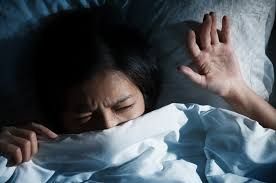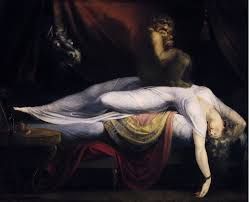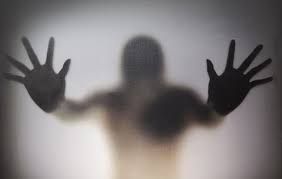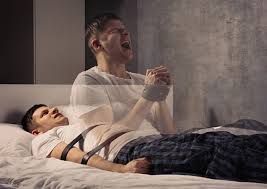Sleep Paralysis-The Most Terrifying Nightmare
May 09, 2019 • 37 views
Have you woke up in the middle of the night, all of a sudden, threatened by the feeling of an evil presence near you? You tried hard to move, but your body would not move.You tried to scream but in vain. The evil spirit drew closer wanting to torment you. It may seem like a ghost movie scene but in reality, you had been experiencing sleep paralysis. This terrifying sleep disorder or parasomnia has been experienced by people since the dawn of humanity. There are numerous myths and ghost stories that revolve around sleep paralysis.

What is sleep paralysis?
Researchers define sleep paralysis as a feeling of being unable to move, either upon awakening or at the onset of sleep. It is usually accompanied by auditory and visual hallucinations or dream-like states which even though harmless may be quite frightening. Very often these hallucinations may be interpreted as dreams evoking a fearful response.
What happens during sleep paralysis?
People who experience sleep paralysis usually feel immense pressure on their chests, increasing their anxiety thus resulting in breathlessness. The ability to move the eyes is preserved although the rest of the body remains paralysed throughout the episode. The individual’s senses and awareness remain intact. Sleep paralysis might occur alongside other disorders such as narcolepsy and is completely normal to experience it from time to time.

Sleep paralysis and hallucinations
The hallucinations experienced during sleep paralysis fall into 3 distinct categories.

Intruder: The individual feels the presence of evil or a threatening intruder accompanied by the sounds of doorknobs opening, footsteps, murmurs etc.
Incubus: Feeling of immense pressure as though something is pressing hard and painfully on the chest and abdomen. The person feels smothered or strangled and sometimes feels like being assaulted by a demon. The fear of death shoots up and the person believes that he/ she is about to die.
Vestibular-motor: The individual feels like floating, spinning, falling, flying. At times out-of-body-experiences like the soul leaving the body to distant places might also occur.
Causes of sleep paralysis
Sleep paralysis usually occurs as a part of the ‘Rapid Eye Movement’ sleep (REM ). When we are asleep our body alternates between the REM and NREM (Non-Rapid Eye Movement) sleep and the voluntary muscles become immobile. One REM-NREM cycle lasts for 90 minutes, with NREM sleep lasting a bit longer. During the NREM sleep, the body remains relaxed while in the REM sleep the eyes move quickly with the body in the relaxed state. Dreams usually occur during this phase. In sleep paralysis, the body’s transition to or from REM sleep is out of sync with the brain and the paralysis happens when the body enters the REM sleep or while leaving REM sleep, but before the completion of the REM cycle.The areas of the brain that detect threats are in a highly sensitive state. The paralysis lasts for a few seconds to several minutes.
Signs and Symptoms
It often starts during teenage and could become more frequent during the 20s and 30s. It is common in people who are deprived of sleep.
Common symptoms include,
Inability to move
Breathlessness
Sweating profusely
A feeling of immense pressure on the chest
Being unable to speak
Being consciously awake
Paranoia, headaches and muscle pain
Sleep paralysis could be a symptom for underlying problems like depression, migraine, anxiety, hypertension and obstructive sleep apnea.

Sleep paralysis, although not fatal can be prevented. However, medical attention is required if the episodes become more frequent and distressing or are associated with other symptoms of sleep-wake disorders and anxiety about going to sleep.
The preventive measure includes effective stress management, maintaining a regular sleep schedule, frequent exercise, reducing caffeine and nicotine may prove helpful in reducing the likelihood of sleep paralysis. Cognitive behavioural therapy is also proven to be effective in preventing sleep paralysis.
Image Source: Google
Find me on instagram @yoursashton
